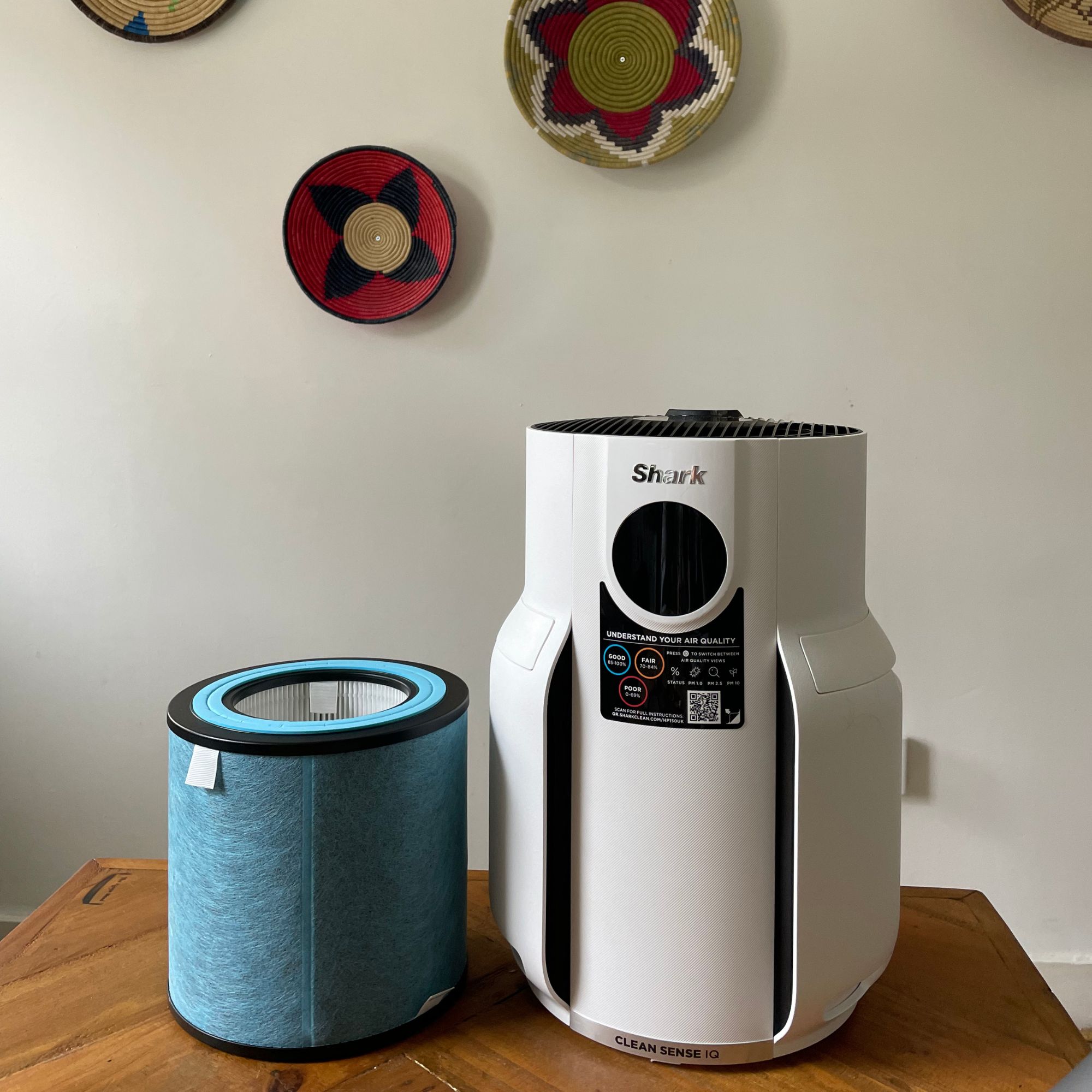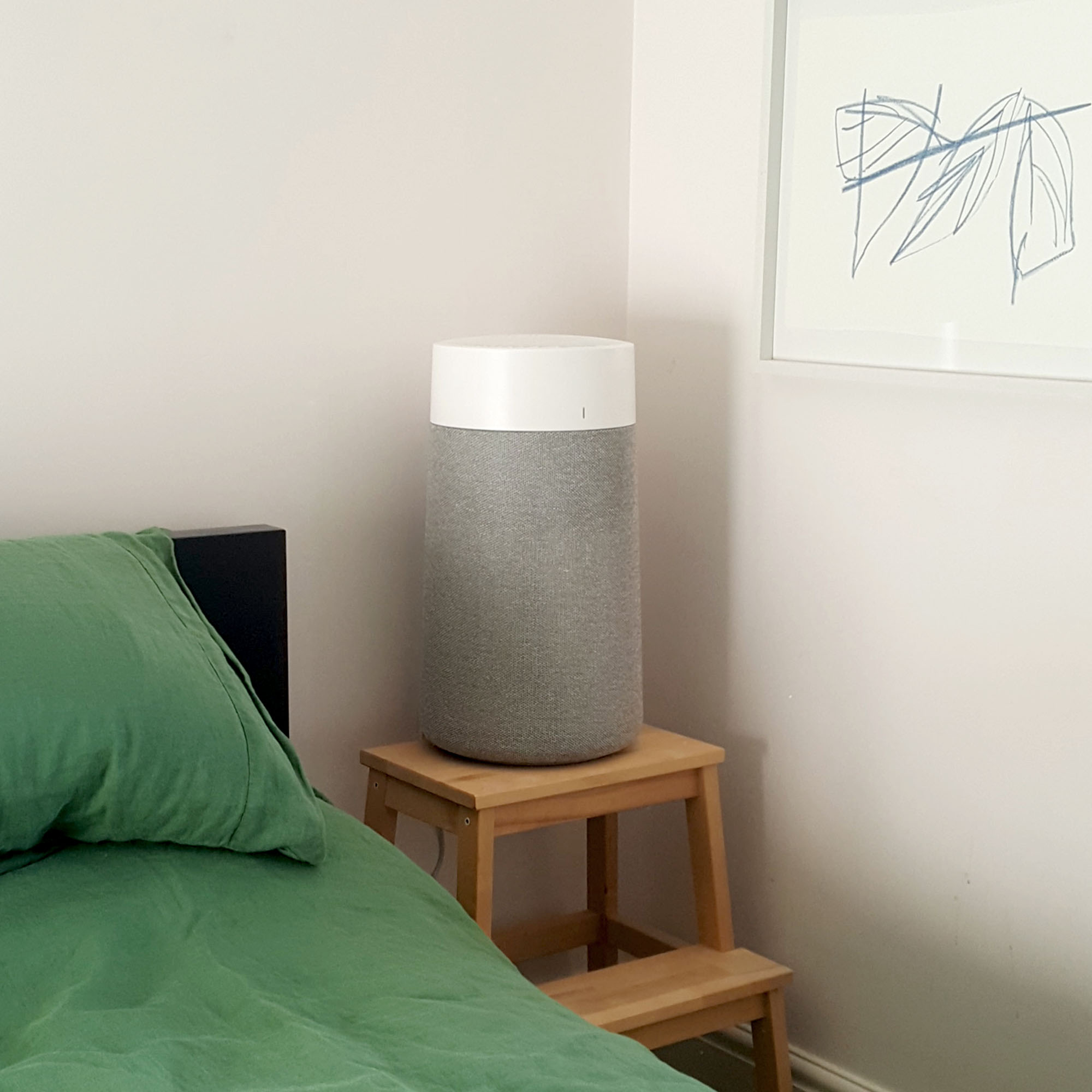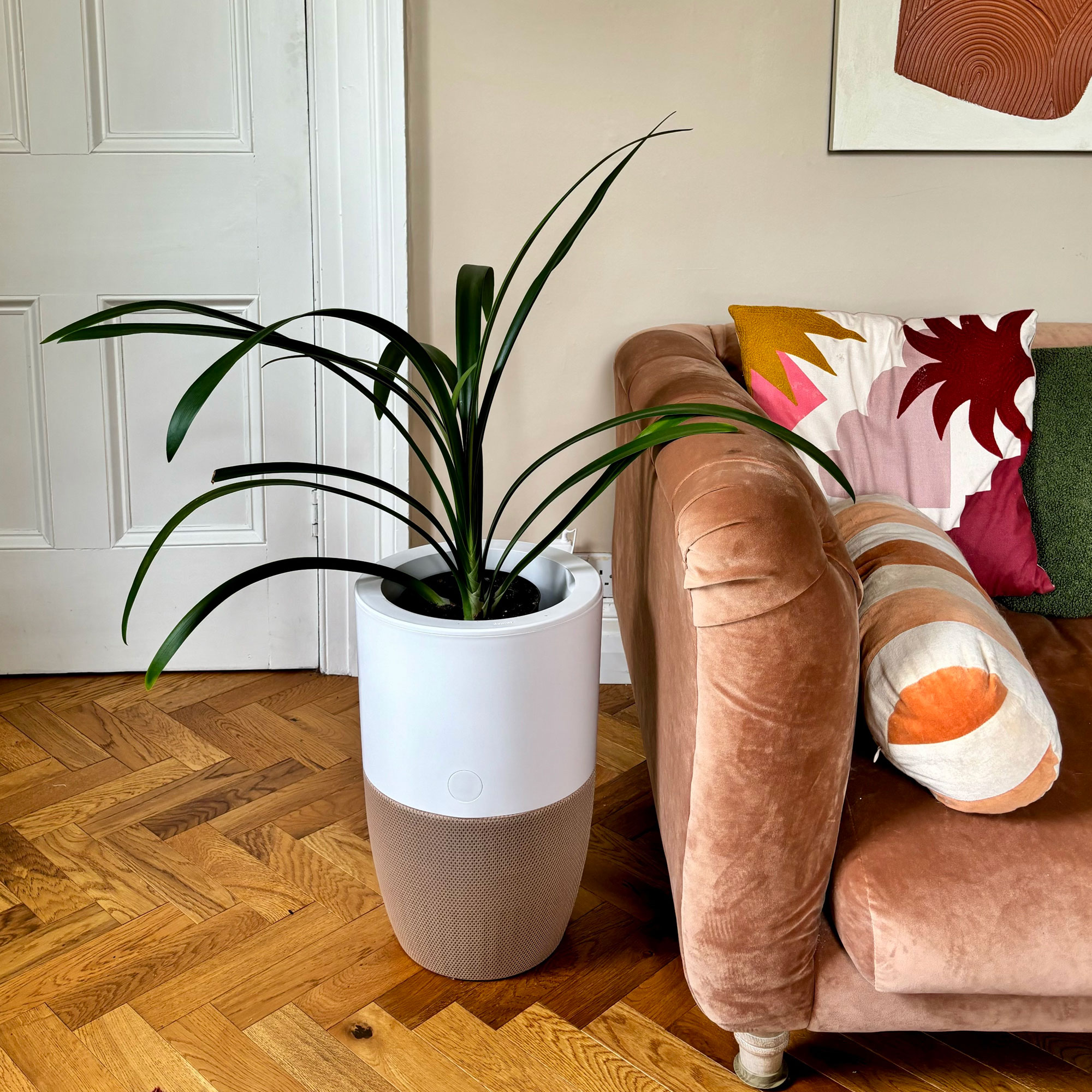
As someone who only developed hay fever as an adult, I still haven’t quite gotten used to the overwhelming symptoms that come with this aversion to pollen (someone please tell me my eyes will stop itching at some point?!) And if you struggle with similar springtime symptoms, you might wonder whether an air purifier helps hay fever.
Of course, the best air purifiers are a worthy addition to any household as they can remove airborne pollutants, impurities, and even odours. And while it’s well-known that air purifiers can help allergies, anyone who suffers from hay fever will know that pollen can be a strong and potent enemy.
That’s why I’ve reached out to air quality experts to see whether this popular appliance is a surefire way to pollen-proof your home. The answer? An air purifier can help with hay fever, but only under certain conditions.
Does an air purifier help hay fever?
The short answer? Yes, an air purifier does help hay fever! However, the long answer is that air purifiers can only help with hay fever when you choose the right kind.
While air purifiers can get rid of dust and remove airborne pollutants from your home, it’s important to realise that no air purifier is 100% effective at removing these contaminants from the air. This is especially true when thinking about hay-fever-inducing pollen, as these pollen particles are minute. In fact, they’re generally about 15-100 microns in size.

This means that they can easily fit through the cracks in your windows and hitch a ride on your pets, ultimately making their way into your home in the process. And while a bog-standard air purifier might not be able to catch these particles, an air purifier with a HEPA filter should be able to catch the majority of them.
This is echoed by Chris Michael, Managing Director of Meaco. He says, ‘Pollen is a fine powdery substance. Not all air purifiers are built to effectively capture and trap such small particles. To be sure of removing most of the particles from the air, you need to choose a unit that has a HEPA filter.’
A HEPA filter is a High-Efficiency Particulate Air filter and is used to catch these minute particles. In most cases, they can catch upwards of 99.97% of pollutants from the air. Because of this, it’s important to choose an air purifier with a HEPA filter if you want to help with hay fever.

Chris adds, ‘These filters are extremely fine, so can trap smaller particles than general air purifiers. If the HEPA filter has captured the pollen then the person with the allergy cannot be breathing it in! Choosing the right size HEPA air purifier for the room space alongside any treatment or medication you have for the allergy problems in your household, should help remedy symptoms.’
Cristina Raboj, Global Proposition Manager at Philips, also explains that if you want an air purifier to help with hay fever, you also need to opt for a model with a higher Clean Air Delivery Rate (CADR). The CADR relates to the volume of air that the appliance can clean in any given amount of time. So, the higher the CADR, the quicker the pollen particles will be removed from your home.
She says, ‘Rather than pollen getting stuck in your eyes, up your nose or down your throat, the filter draws allergens in and sanitises the air, leaving you with much better air quality in your home.’
But while there’s no doubt that an air purifier with a HEPA filter can certainly help with hay fever symptoms, it’s important to note that it can’t cure hay fever completely - just as a dehumidifier can also help hay fever without getting rid of your symptoms entirely. You also need to keep on top of your air purifier maintenance, which is why cleaning your air purifier should be a priority if you have hay fever.

First and foremost, you always need to make sure you replace your air purifier filter when necessary. After all, the filter is what captures the pollen particles, and its effectiveness can be compromised if it’s dirty or past its prime.
The timescale for this task varies from model to model, though. In fact, I have the Shark NeverChange5 air purifier, which, as you can probably tell from the name, doesn’t require a filter change for a whopping five years. All it needs is a quick vacuum every couple of weeks. So, it’s important to check with your own mode
Lars Dunberger, Head of Technology at Blueair, also states that the location of your air purifier can also help with hay fever. He says, ‘Placing an air purifier in rooms where you spend the most time, like the bedroom or living room, can drastically improve your air quality during this critical time of year.’
Personally, I struggle with my hay fever symptoms the most just before I go to sleep, so I always have one on my bedside table during allergy season.
The best air purifiers for hayfever sufferers
Dubbed the 'best overall' air purifier in our guide, the Blueair Blue Max 3250i Air Purifier has the ability to filter out 99.97% of airborne particles down to 0.1 microns in size - including pollen. Plus, it's pretty stylish and very affordable.
If you have a smaller home, the Levoit Core 300S is perfect for you - and your hay fever symptoms. The HEPA filter will successfully capture pollen in the air, and you can even take advantage of Wi-Fi connectivity and voice-activated control.
Combining the power of one of the best dehumidifiers with an air purifier, this model is perfect for those who want to soothe their hay fever symptoms. This is thanks to the H13 HEPA filter, which is one of the best in the business.
FAQs
Do air purifiers help with nasal congestion?
If you suffer from nasal congestion, there’s a high chance that you are allergic to something. If this is the case, using an air purifier with a HEPA filter can help to ease your symptoms. That’s because the air purifier will remove around 99.97% of the allergens from the air, hopefully improving your breathing at the same time.
However, you also may want to consider the air purifier vs humidifier debate, as you may find that the extra moisture in the air will help to loosen your nasal passages and ease your congestion. If this doesn’t help, you should seek advice from your doctor.
How long does it take for an air purifier to help with allergies?
How long an air purifier takes to help with allergies ultimately depends on many things, including the size of the room, the amount of allergens present, and the air purifier itself. However, on average, you should expect a high-quality air purifier to start helping with allergies within 30 minutes of turning it on.
It’s important to note that air purifiers can’t cure hay fever or other allergies, though. That’s why it’s so important to consistently use this appliance if you want to continually feel the effects.
If you suffer from hay fever, an air purifier will soon become your best friend.







